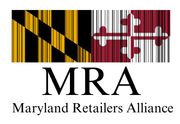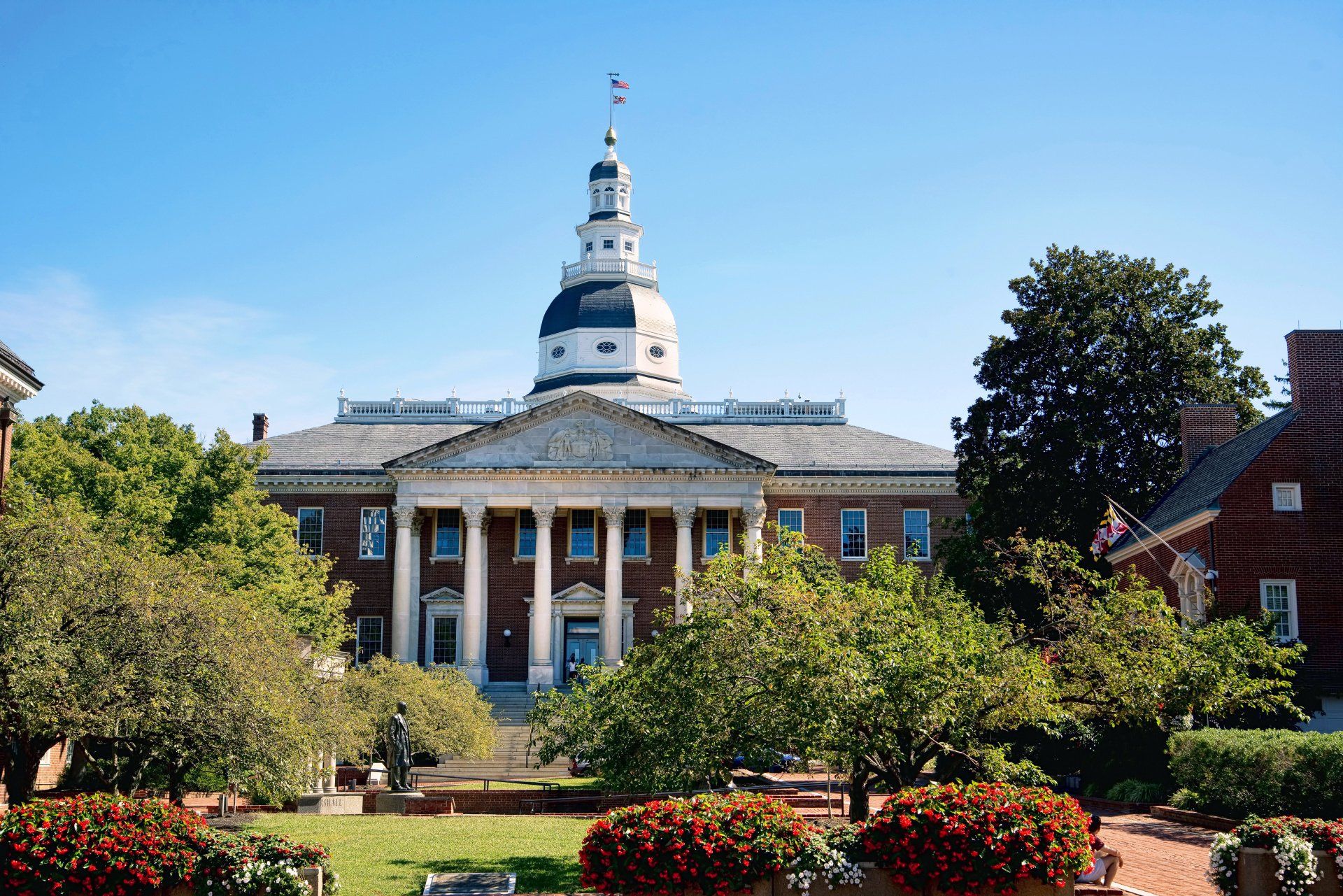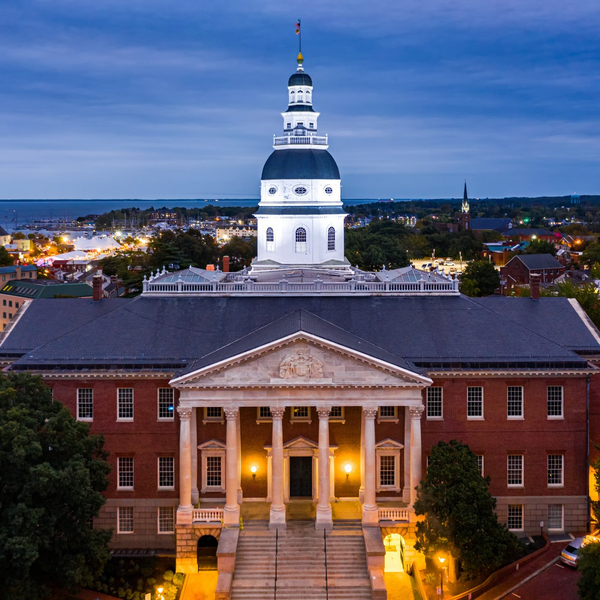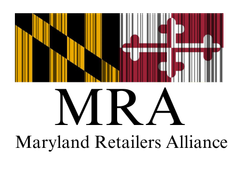The Voice of Retail in Maryland
We advocate for the retail community, provide cost-saving opportunities and benefits, and keep our members up-to-date on the latest news impacting businesses in Maryland.
Legislative advocacy for Maryland retailers at the state and local level remains our number one job.
Our cost-saving benefit partners, offering deals exclusive to MRA members, will put money back in your pocket.

As excerpted from The Baltimore Sun: Lobbyists and advocates looking to wield their influence with Maryland officials — with a record $58 million behind them — saw both wins and losses this year in Annapolis. For the viewing public, it’s sometimes difficult to discern one from the other. The Baltimore Sun analyzed data from thousands of new lobbying disclosures , reviewed other public records and interviewed individuals to understand where lobbyists and advocates tried to put their fingers on the scale in the months before and during the 90-day session that ended in April. ... Another business group, the Maryland Retailers Alliance, became the third-largest lobbying entity this year, with total expenses of $625,190. Cailey Locklair, its president and top lobbyist, said retailers’ top priority was a success — the creation of a new felony-level “organized retail theft” crime for property with an aggregate value of more than $1,500. Two other high-profile goals gained little traction. One aimed to adjust the Maryland Online Data Privacy Act, which lawmakers passed in 2024 to limit the amount of personal data that companies can collect. Locklair said the law went too far, severely limiting how retailers can target ads to potential customers. The other was the repeal of Maryland’s ban on beer, wine and liquor being sold in supermarkets and other retail establishments. All four of the new lobbyists hired by the Retailers Alliance this year, in their disclosures to the State Ethics Commission that showed they were collectively paid $119,000, only listed those bills as their focus. Moore said in December he supported the change and indicated he was confident lawmakers would send him a bill. Senate President Bill Ferguson soon dampened those expectations, saying in an interview with The Sun in January that it was “not something that we’re going to be spending a lot of brain power trying to figure out.” Legislation in both chambers never received even an initial committee vote. Locklair acknowledged the “very strong lobby on the other side” — referring to groups like the Maryland State Licensed Beverage Association, whose $144,000 in lobbying expenses was about $36,000 more than the previous year. But the support from the governor and increased conversation this year was a good sign, she said. “Absolutely we will be bringing it back,” Locklair said. “I think there’s a lot of momentum on this and a lot of positive conversations taking place.” Click here to read the full article from The Baltimore Sun .

As excerpted from The Baltimore Sun: A Baltimore County Council bill that would have created an environmental enhancement fund partially financed with money retailers charge for paper bags failed Monday night. The legislation would have required retailers to give the county a minimum of 2 cents from each 5-cent fee collected from distributing paper or reusable bags. The money collected would have gone to a fund that could have been used to give grants to groups for cleaning waterways or picking up litter. ... The Maryland Retailers Alliance opposed the bill, not because it disliked the concept of an environmental education and enhancement fund, but because it opposed reducing the amount retained by retailers, putting Baltimore County businesses at a disadvantage. “Maintaining the fee as-is provides transparency for customers because they know what they’re paying for — they’re paying for that bag,” Sarah Price, the alliance’s vice president of communications and government affairs, said at an April work session. “It reduces competition between businesses and it ensures that the mandate is paid for by the people who choose to continue using single-use bags.” Click here to read the full article from The Baltimore Sun.

Maryland businesses relying on imports from Asian countries continue to worry, even with President Donald Trump putting a hold on most of his sweeping tariff plan. While a 125% tariff is now on goods from China , only a 10% universal tariff is in effect for virtually all countries. The reciprocal tariff plan, which pummeled Asian countries the most, is on hold for 90 days. Tessa & Sons Philippine Market in Glen Burnie helps fill a niche by being the only dedicated Filipino grocery store in the greater Baltimore area. Theresa Laviano, who has been running the market for about 10 years, but only recently has she been particularly concerned about business. While the store carries some American products, the majority come from the Philippines and other Asian countries. "That's the purpose of [the tariffs], to buy American products, but most of our products are imported," Laviano said. "So, if they impose more tariffs...that's the greater impact on the cost of all of the goods." If tariffs had gone into effect Wednesday as planned, goods from the Philippines would have had another 17% tariff tacked on. Other Asian countries had tariffs as high as 46%. The manager for Lil' Thingamajigs in Ellicott City told WJZ there's concern about how the tariffs would impact the store's bottom line. The store's anime, K-Pop, and other Asian pop culture products are heavily imported. Cailey Locklair, president of the Maryland Retailers Alliance, said the Trump administration's tariffs have been a heated topic within her organization and its members. The Maryland Retailers Alliance advocates for more than 6,000 businesses, ranging from large retailers to small businesses. Locklair said the tariffs don't do anything to fix inflation, which she calls the biggest issue: inflation. "The tariffs we're talking aout are extreme, they do not appear to be targeted or strategic," Locklair said. "We really need to think about lowering costs for American families, who have been struggling with inflation and higher prices for too long." Locklair is calling for policies like the Tax Cuts and Jobs Act and the USMCA Trade Agreement, both of which were passed and implemented during Trump's first term. But, until then, Locklair -- and businessowners like Laviano -- are just riding the wave and adapting where they can. "One at a time, we live day by day," Laviano said. Click here to read the article from CBS NEWS .

SILVER SPRING, Md. — This year, the state of Maryland is cracking down on retail theft. Since COVID, retail industry experts have reported a rise in flash mob and smash & grab retail thefts across the country. The D.C. region does not appear to be an exception. This trend led the state of Maryland to look at harsher penalties to deter would-be thieves. For the last decade, retail and shoplifting laws in Maryland have seen less severe penalties than other nearby states. For example, the threshold for retail theft to reach a felony was $1,500 in a single jurisdiction. That meant if a thief stole $1,500 of items between two counties, it would just be a misdemeanor. Misdemeanors can carry prison time, but it’s not mandatory. Retail experts believe that loophole, combined with several other factors, led to a rise in crime. “Organized retail crime has grown dramatically, especially in the last 10 years,” said Cailey Locklair from Maryland’s Retail Alliance, which represents all types of shops from big box stores and the grocery chains to the mom-and-pop shops. “These shops absolutely cannot just file with insurance and insurance reimburses them for the value of goods that are stolen,” she explained. Locklair said the increase in flash mobs and smash-and-grabs across Maryland rattled retailers. “When you hear from large retailers what these numbers are [it’s a lot],” she said. “We are talking about millions of dollars [stolen] in Maryland alone for one company.” This year, Maryland’s lawmakers listened, passing Prince George’s County Democrat Sen. Ron Watson’s organized retail theft law. “This bill says that if a group of folks steal from multiple stores in several counties, and the aggregate amount of everything stolen is more than $1,500, then everyone gets charged with a felony,” Sen. Watson said. “That charge also includes the cost to repair or replace anything damaged in the robbery attempt. “ “This is a big deal because we know that these rings go from county to county, store to store, and actually do the same thing over and over,” he finished. Locklair said Maryland isn’t the only state to tighten shoplifting laws. “Finally, Maryland moved forward, California has already passed this bill before us and so many other blue states had done so as well,” she said. Lawmakers hope this crackdown can bring down mass retail theft. Click here to view the interview with WUSA9 .

FOR IMMEDIATE RELEASE April 2, 2025 Maryland Passes Long-Awaited Organized Retail Crime Law to Combat Rising Theft Annapolis, MD – After nearly a decade of advocacy, the Maryland General Assembly has officially passed a landmark Organized Retail Crime (ORC) law , equipping law enforcement and retailers with the tools needed to combat sophisticated retail theft operations. The new law creates a clear definition of organized retail crime , enables statewide data collection , and allows theft to be aggregated across jurisdictions – closing a critical loophole long exploited by criminals. For years, organized retail crime has plagued Maryland businesses, with criminals strategically jumping from jurisdiction to jurisdiction to stay below the state’s $1,500 felony theft threshold and evade serious charges. This legislation, HB179/SB11, ensures that law enforcement and prosecutors can track repeat offenders, combine offenses across counties, and pursue stronger penalties against those orchestrating these crimes. “Retailers across Maryland have been sounding the alarm on organized retail crime for years,” said Cailey Locklair, President of the Maryland Retailers Alliance. “This law is a game-changer. It finally gives law enforcement the ability to treat organized retail theft as the serious crime it is, rather than a series of unrelated incidents.” Organized retail crime has become a growing threat nationwide, impacting large chains, small businesses, and consumers alike . Stolen goods often end up being resold in illicit markets, fueling larger criminal enterprises. By defining organized retail crime in state law and enhancing tracking capabilities , Maryland joins a growing number of states taking decisive action to protect businesses, employees, and communities. “This is a major victory for public safety and economic stability in Maryland,” said House sponsor Delegate Karen Toles. “With this new law, we’re sending a clear and concise message: organized retail crime will no longer go unchecked in our state.” The passage of this law marks a significant step forward in Maryland’s fight against retail theft, ensuring stronger accountability for repeat offenders and greater protections for businesses and consumers . ### Contact: Cailey Locklair 317-397-1918 clocklair@mdra.org







